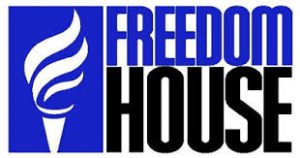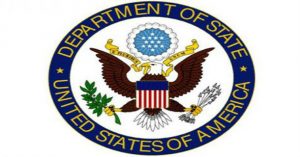 The latest report from the Freedom House, the non-government organisation funded by the United States Government which conducts research and advocacy on democracy, political freedom and human rights, states that Tibet is the second least free country in the world, after Syria. Of the 50 countries and territories designated as “Not Free”, the worst aggregate scores for political rights and civil liberties are Syria, Tibet, Somalia, North Korea and Uzbekistan. The countries were classified on a scale from one to seven, with one being most free and seven being least free. Tibet was rated a seven for both political rights and civil liberties.
The latest report from the Freedom House, the non-government organisation funded by the United States Government which conducts research and advocacy on democracy, political freedom and human rights, states that Tibet is the second least free country in the world, after Syria. Of the 50 countries and territories designated as “Not Free”, the worst aggregate scores for political rights and civil liberties are Syria, Tibet, Somalia, North Korea and Uzbekistan. The countries were classified on a scale from one to seven, with one being most free and seven being least free. Tibet was rated a seven for both political rights and civil liberties.
Three other reports published in February and March this year disclose the limited human rights for Tibetans inside Tibet. A second Freedom House report entitled The Battle for China’s Spirit: Religious Revival, Repression, and Resistance Under Xi Jinping analyses the situation for seven religious groups in China:Chinese Buddhism; Taoism; Catholicism; Protestantism; Islam; Tibetan Buddhism and Falun Gong (Falun Gong has been banned in China since 1999).
The key findings of this report state that controls over religion in China have increased since 2012 and an estimate of the numbers of people in China who belong to religious groups shows that nearly one third face “high” or “very high” levels of persecution, this particularly applies to Protestant Christians, Tibetan Buddhists, Uighur Muslims and Falun Gong practitioners.
The report states that “President Xi Jinping has largely continued the repressive policies and campaigns of his predecessor, Hu Jintao, while deepening and expanding certain controls. New measures include punishing assistants to self immolators, canceling previously permitted festivals, increasing intrusive restrictions on private religious practice and, more proactively, manipulating Tibetan Buddhist doctrine and the selection of religious leaders”.
 The Government of the United States of America released its annual report on human rights around the world on March 3. This report confirms a wide range of human rights violations in Tibet and also states that the outcome of China’s policies in Tibet is severe repression of Tibet’s unique religious, cultural, and linguistic heritage by, among other means, strictly curtailing the civil rights of the Tibetan population.
The Government of the United States of America released its annual report on human rights around the world on March 3. This report confirms a wide range of human rights violations in Tibet and also states that the outcome of China’s policies in Tibet is severe repression of Tibet’s unique religious, cultural, and linguistic heritage by, among other means, strictly curtailing the civil rights of the Tibetan population.
The same situation is reported by the Tibetan Centre for Human Rights and Democracy (TCHRD) in their 2016 Annual Report Human Rights Situation in Tibet. At a press conference on February 23, Tsering Tsomo, the director of TCHRD, said that the report demonstrates an increase in control over the right to freedom of expression, opinion, privacy, religion and assembly in Tibet.
The impact of China’s policies in Tibet is very clearly highlighted by the number of self-immolations in Tibet. 145 Tibetans have burned themselves since 2008; 25 of these people were aged 18 or under – young people who have been raised under the current Chinese regime. Most of them have clearly stated their wish for freedom and the return of His Holiness the Dalai Lama to Tibet.
The report quotes a newcomer from Tibet who does not wish to be named in case it jeopardises their security: “As a Buddhist, we consider human life very precious but the Tibetans who have self-immolated in Tibet have no other alternative to express their view, they will anyhow suffer and die in the Chinese prison for protesting”.




 Print
Print Email
Email